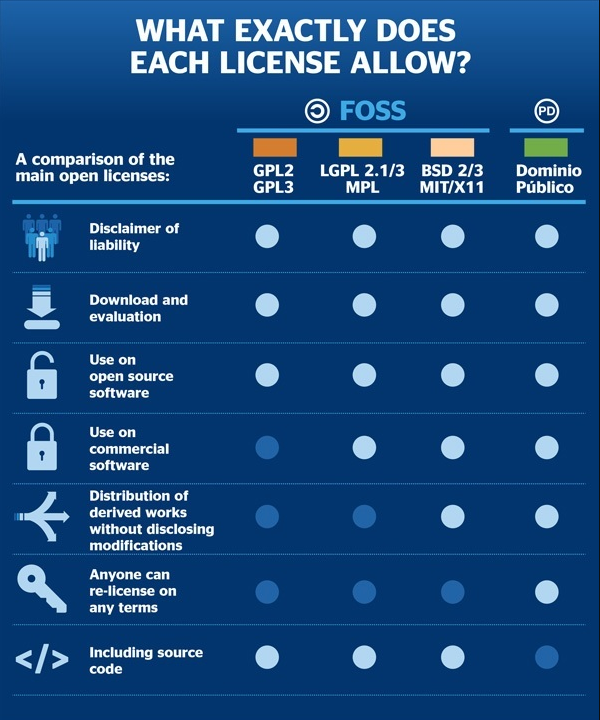Choosing the right open source software license is a critical decision for both contributors and users. It provides the necessary protection for businesses and developers, ensuring the success and adoption of a project. In this comprehensive guide, we will explore the various open source licenses available and help you make an informed choice.

Understanding the Importance of Open Source Licenses
Open source software has revolutionized the tech industry, empowering collaboration, innovation, and community-driven development. However, without a clear and well-structured license, the benefits of open source can quickly turn into legal nightmares.
Open source licenses serve as a legal framework that defines the terms and conditions for using, modifying, and distributing open source software. They provide the necessary permissions and protect the rights of both the contributors and the users.
Nowadays, businesses and developers are cautious about using open source projects without proper licensing. It ensures that the software they depend on is freely available, can be modified to suit their needs, and provides liability protection if any issues arise. Without a license, the project may face legal uncertainties and the reluctance of potential contributors and users to get involved.
Types of Open Source Software Licenses
There is a wide range of open source software licenses available, each offering different terms, permissions, and restrictions. Let’s take a closer look at some of the most popular licenses and their characteristics:
1. GNU General Public License (GPL)
The GNU General Public License, or GPL, is one of the most widely used open source licenses. It is known for its strong copyleft provisions, ensuring that any derivative works also remain open source with accompanying source code availability. This license promotes community collaboration and ensures that the software remains freely accessible to all.
With the GPL license, businesses and developers can modify, distribute, and sell the software with the condition that the source code remains open and available. This ensures that proprietary software cannot incorporate GPL-licensed code without becoming open source as well.
2. MIT License
The MIT License is a permissive open source license that allows users to freely use, modify, and distribute the software with very few restrictions. It is renowned for its simplicity and flexibility, making it a popular choice for both individual developers and commercial organizations.
Unlike copyleft licenses like GPL, the MIT License does not require derivative works to be open source. This makes it an attractive option for businesses looking to incorporate open source code into their proprietary software without disclosing their source code.
3. Apache License 2.0
The Apache License 2.0 is another permissive open source license that promotes collaboration and widespread adoption. It offers similar freedoms as the MIT License but includes a patent license clause, providing additional protection to users.
This license allows businesses and developers to use, modify, and distribute the software under the condition that they provide attribution and include the original license and copyright notices.
Choosing the Right License for Your Project
Now that we have explored some popular open source licenses, how do you choose the right one for your project? Consider the following factors:
1. Project Goals and Philosophy
Identify the goals and philosophy of your project. Do you want to promote collaboration and community-driven development, or do you prioritize flexibility and integration with proprietary software? Understanding your project’s values will help guide you towards a suitable license.
2. Collaboration and Contribution
If you want to encourage collaboration and widespread contribution, licenses like GPL can be a good fit. These licenses ensure that improvements and modifications made by the community remain open and accessible to all.
3. Compatibility
Consider the compatibility of the license with other open source projects. Some licenses may impose restrictions or requirements that could conflict with certain projects or limit potential collaborations.
4. Legal Advice
When in doubt, seek legal advice from experts in open source licensing. They can help you understand the implications of each license and how it aligns with your project’s goals and requirements.
5. The Future of Your Project
Think about the long-term goals and plans for your project. If you anticipate potential partnerships, commercialization, or integration with proprietary software, a permissive license like MIT or Apache License 2.0 may provide more flexibility.
The Bottom Line
Choosing the right open source software license is crucial for the success and adoption of your project. It provides the necessary legal protections and ensures that your software remains accessible and valuable to the community.
Consider the goals, philosophy, collaboration needs, compatibility, and future plans of your project when selecting a license. Remember, seeking legal advice is always a wise decision to ensure your choice aligns with your project’s requirements.
By selecting the appropriate open source license, you can create an environment that fosters collaboration, innovation, and the continued growth of your project.
